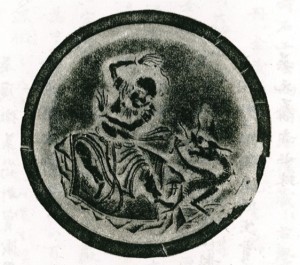Friday, January 27, 3:00 – 5:00 p.m. in CEAS 319 (1155 E. 60th St.)
Kyle Peters, “Artistic Production and the Making of the Artist: Applying Nishida Kitarō to Discussions of Authorship”
This Friday, please join us as we host Kyle Peters (PhD Student, EALC). Kyle summarizes his talk as follows:
Nishida Kitarō’s account of authorship and artistic production constitutes the focus of this essay. Its general thesis is that Nishida’s keen attention to the subjective qua objective, active qua intuitive intersection can be used to articulate a new, bidirectional account of artistic production. This essay uses this bidirectional account to critically engage with those unidirectionalinterpretive procedures grounded in the life or death of the Author; it takes up the former as it privileges the subjective conditions of production, reducing text and historical moment to a derivative of the Author and their life, and the latter as it privileges the objective conditions of production, subsuming text and author into a byproduct of the historical moment. In doing so, it claims that both of these procedures fail to adequately address the way in which artist, text, and historical moment inter-connect. Using Nishida’s thought to more fully consider this inter-connection, this essay brings in his attention to the above-mentioned subjective qua objective intersection in order to offer a bidirectional interpretation that is sensitive to the way in which artist, text, and historico-material conditions are produced in and through each other. More specifically, this essay uses Nishida’s thought to advance two central claims about authorship: first, that artistic agency is decentered across a manifold of positions in artistic production, and thus that artistic production is diffused across the continuum of subjectivity and objectivity; and second, that the artist’s subjectivity is creatively produced through the novelty of the work of art as it reallocates, reorganizes, and redeploys the historical body in the self-determination of the present moment.
The paper is available at this link. If you have not received the password for the post, or if you have concerns about accessibility, please feel free to contact Alex Murphy at murphya1@uchicago.edu.




